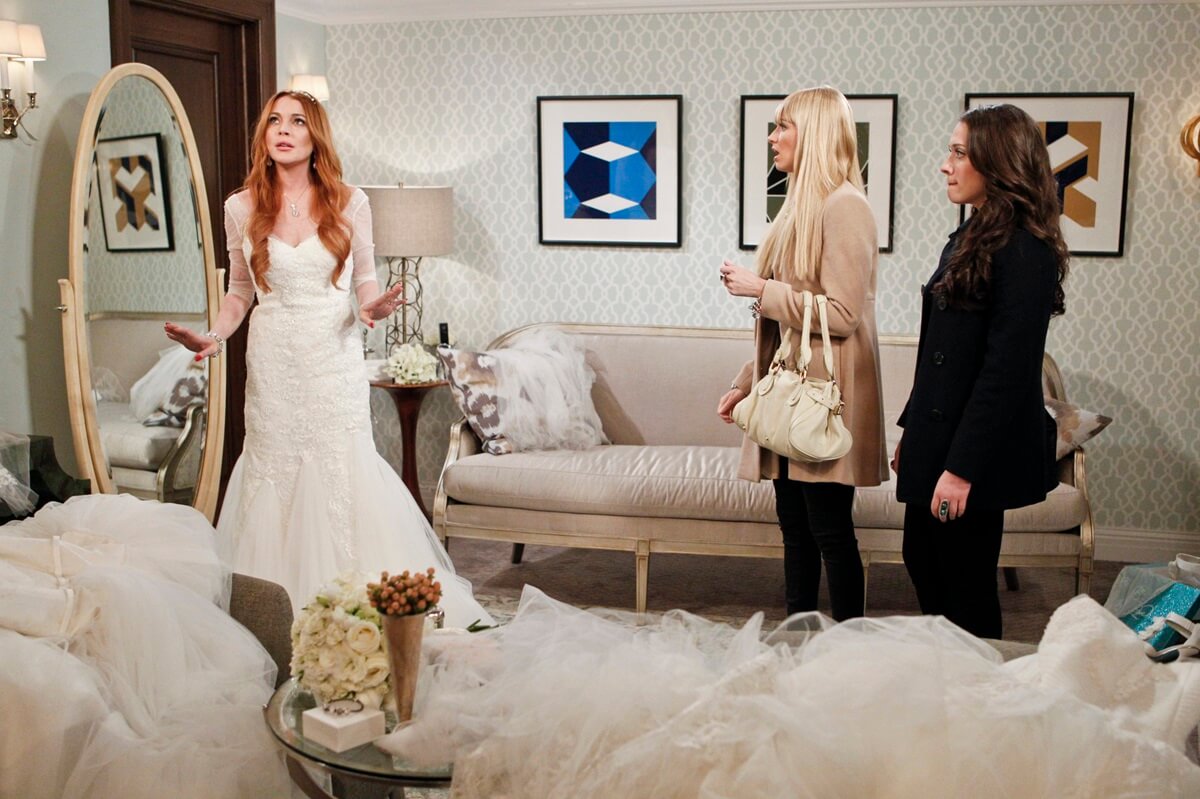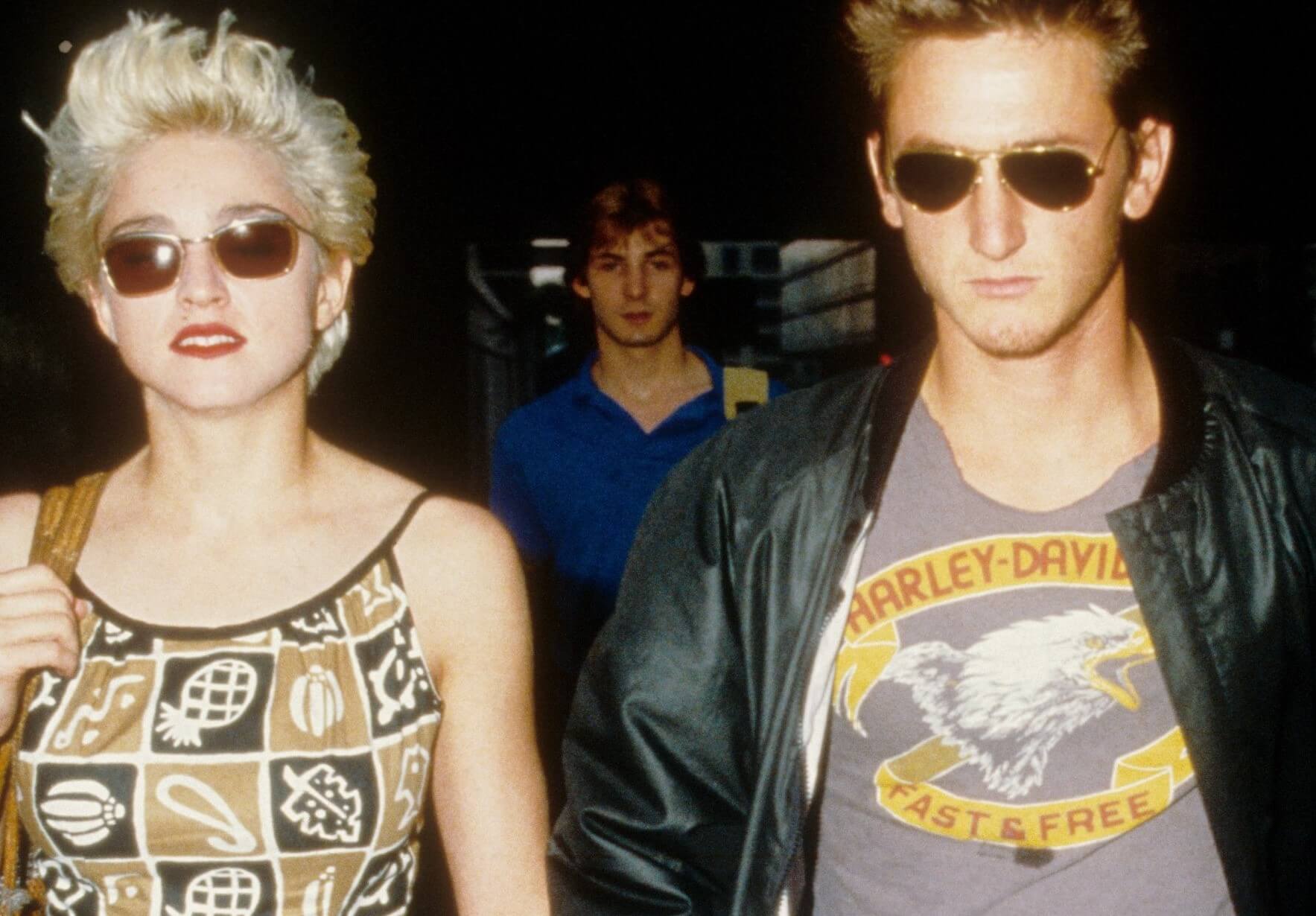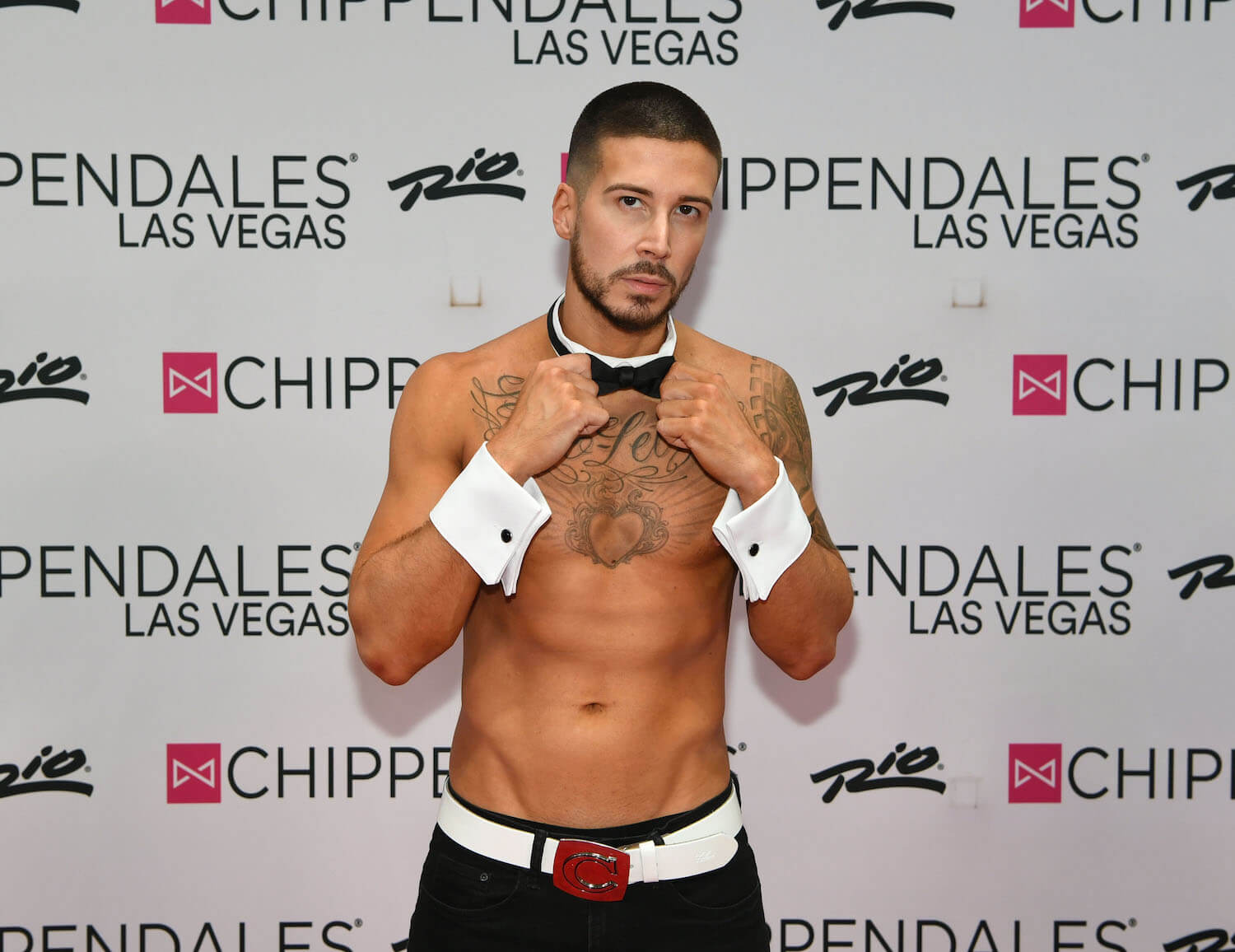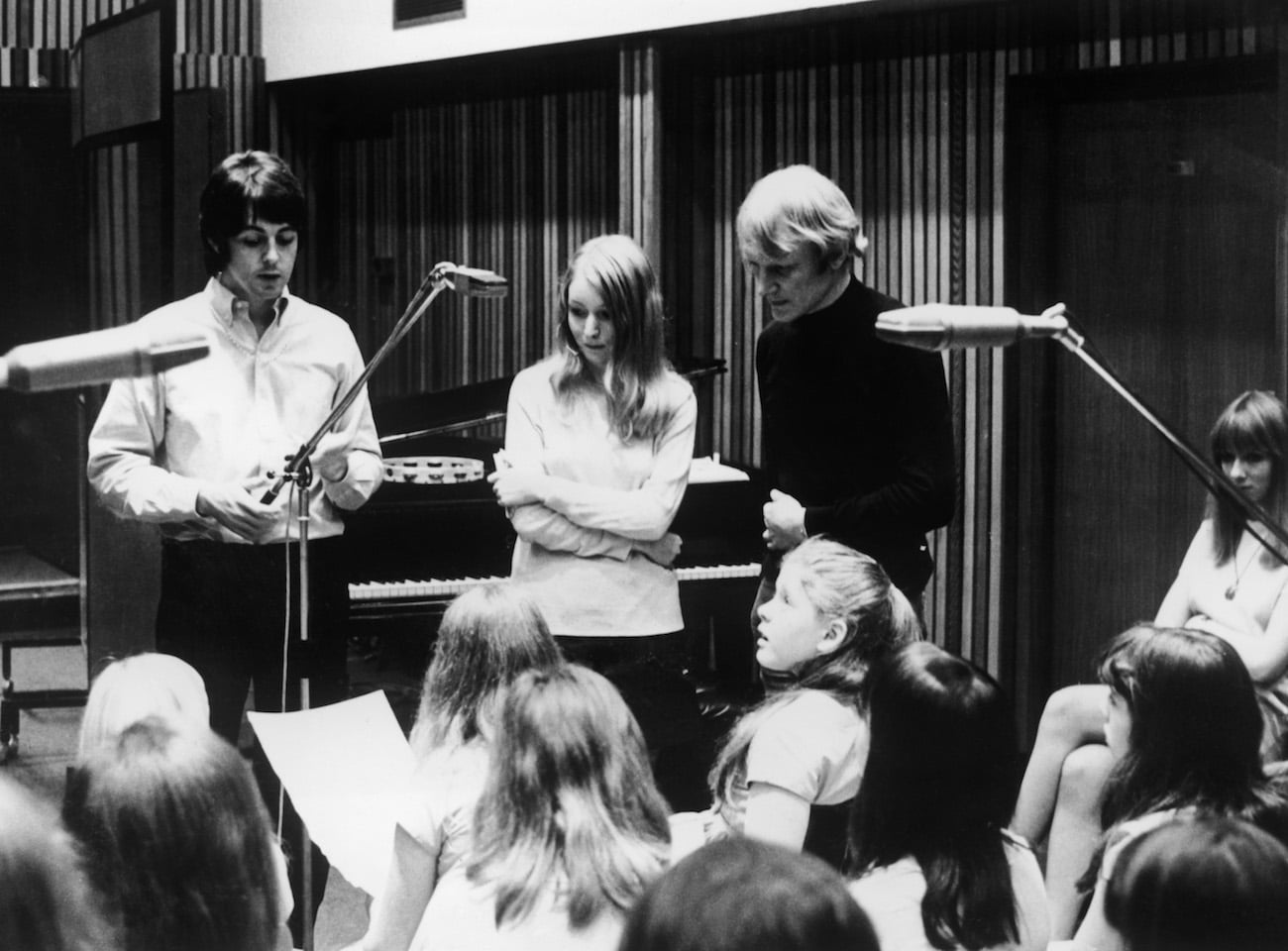
Paul McCartney Said a Song He Wrote for Mary Hopkin Has a Sort of Lyric He’s Never Used Before or Since
After watching her on TV, Paul McCartney knew he wanted to work with Mary Hopkin. By then, The Beatles had become talent scouts for their recently formed Apple Records. They were always on the lookout for bright talent.
Hopkin was one of the lucky. Paul produced her and wrote her a song that contained a certain kind of lyric he’d never used before or since.
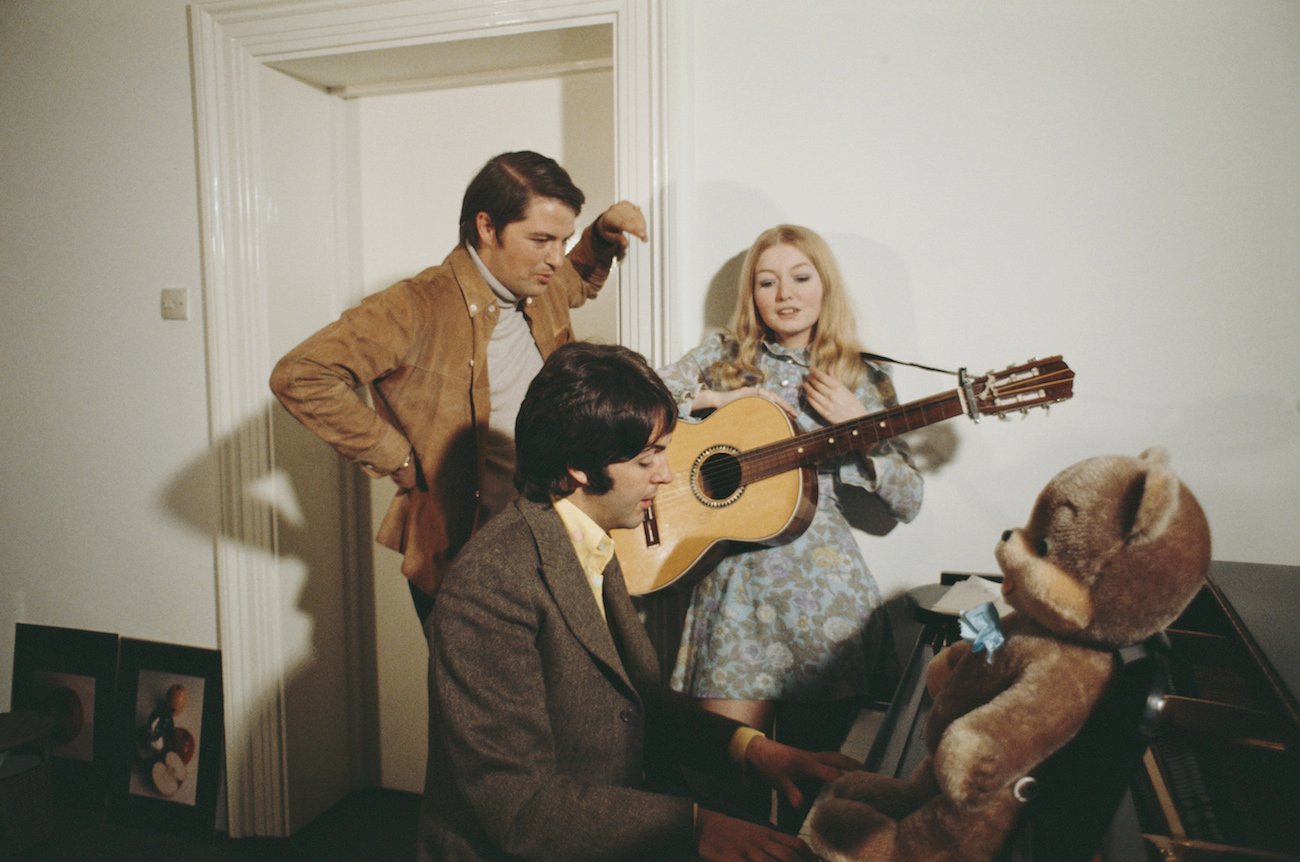
Twiggy told Paul McCartney about Mary Hopkin
In The Lyrics: 1956 to the Present, Paul wrote that actor Twiggy mentioned Hopkin during dinner one night. The actor asked Paul if he’d seen her sing on TV. When Paul said he hadn’t, Twiggy told him to watch her next week.
Paul did, and he thought, “Wow, terrific voice.” Hopkin was singing in a competition called Opportunity Knocks, which was like American Idol. Hopkin won.
After seeing her on the show, Paul immediately wanted to work with her. He thought, “Okay, I’ve got an idea of a couple of things I could do that she could sing, and I could produce the session.” Eventually, Paul called Hopkin and her parents (she was only 18 years old) to discuss collaborating.
Paul suggested producing her for The Beatles’ Apple Records. First, Paul wrote “Those Were the Days,” which he based on a version of an old Russian song. Then, Paul taught Hopkins the ropes. Before they began recording, he showed her the song so she could record it without looking. Paul said Hopkin was very good at performing the song. She was a natural throughout the entire process.
“Those Were the Days” was Hopkin’s most successful song, and Paul knew it’d be a hit. Then, he started looking for something to follow. He decided to write her something.
Paul wrote ‘Goodbye’ for Hopkin, which has a kind of lyric he’d never used before or since
Before writing Hopkin’s next song, Paul thought he’d write something in the same “whimsical tone.” Paul wrote Hopkin “Goodbye.” It’s a simple romantic song. However, it contains a type of lyric that Paul had never used before or since.
He wrote, “Even today, over fifty years later, what interests me in this lyric – and I don’t think I’ve ever done it before or since – is the use of the same word over and over, in each line. So ‘Please don’t wake me until late / Tomorrow comes and I will not be late / Late today when it becomes tomorrow.’
“I would normally shy away from that and try and find another word that isn’t just a repeat, but I think repetition, sometimes, is effective. ‘Leave your flowers at my door / I’ll leave them for the one who waits behind.’ The word ‘lonely’ is used in the same way in the third verse.”
People frequently request ‘Goodbye’ on the radio
Since “Goodbye” is a traditional “I’m leaving, but I’ll be back soon” kind of song, many people have requested it on the radio because it’d be going out to people in the military, etc.
Paul wrote that situations like these always influenced him. He’d imagine himself “into the position of the person listening to the song far away from home. I’d imagine I was one of the home crowd, thinking, ‘Gosh, they’re missing this with all the uncles and aunties and all the fun of being at home.’ It would be sad.”
Years later, Paul and his family were sailing from the tip of Scotland to the Shetland Islands. The captain was called Captain George, and he told Paul that “Goodbye” was his favorite song of all time. “I understood, because he was always going off on his fishing trips, so he understood that ‘don’t worry, I’ll be back’ sentiment,” Paul wrote.
In the end, Paul boosted Hopkin and gave her the tools necessary to become a star. The Beatle liked producing her. However, she wanted to be a folk singer, and the pair parted ways. Paul thanks Twiggy for telling him about Hopkin.
